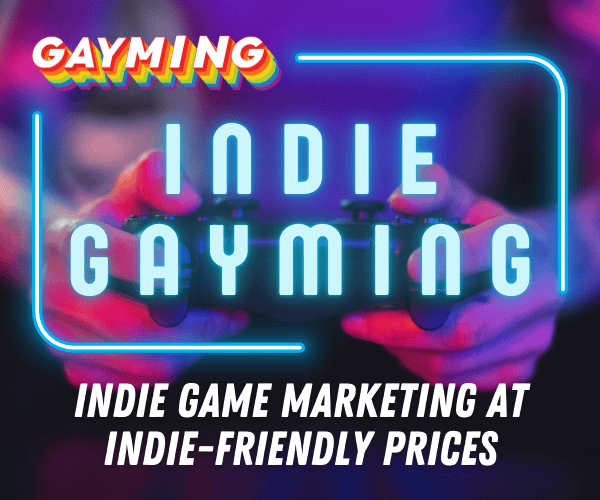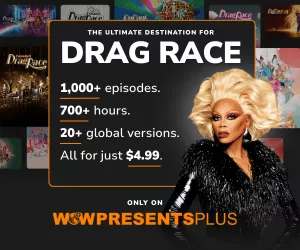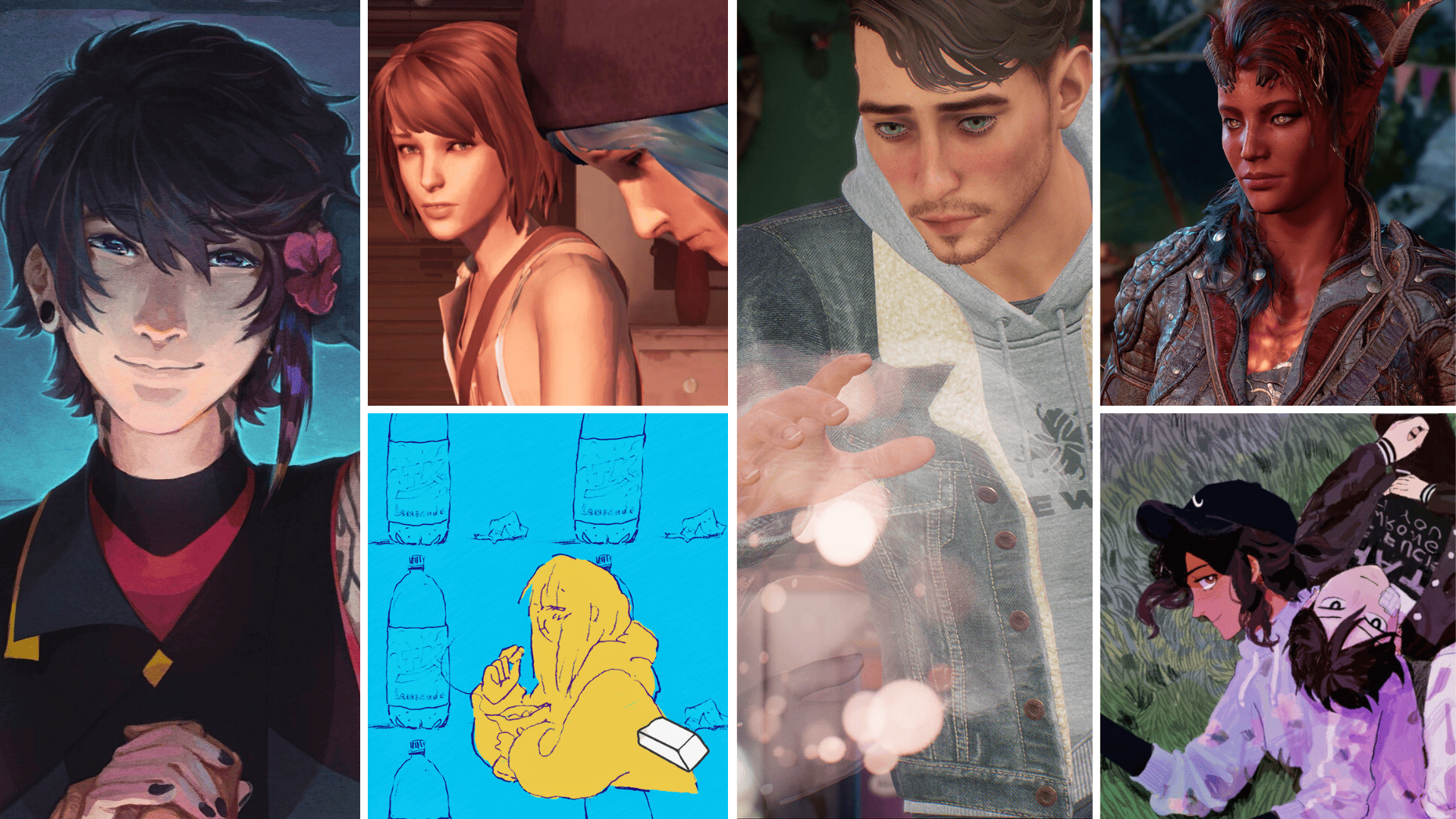
13 essential queer video games to get you into gaming
Now, more than ever, are people looking to get into the world of gaming.
Everyone plays games, whether it’s your mum acing a level on Candy Crush or your nephew teaching you the intricacies of all things Minecraft — gaming is pretty much everywhere.
For queer people looking to get into gaming however, there may be that all-too familiar longing to see stories that give us the limelight in new and meaningful ways. With this in mind, we’ve curated a short, but essential list of games for those looking to start their gaming journey.
But what makes a video game essential to the queer gaming experience? That’s a loaded question, and, so that I don’t get angry emails about how I’ve missed out on any classics, I’ve decided to put down some limitations so that every game on this list meets 2 essential requirements.
- It must be able to be accessed by the modern gamer. If someone has to go rummaging for their Magnavox Odyssey in storage to play a game, it won’t be on this list.
- There must be a queer element to the game beyond a blink-and-miss-it moment. LGBTQ+ side characters and instances are always beloved here on Gayming, but if it isn’t an essential story or narrative in-game, then it won’t be included here.
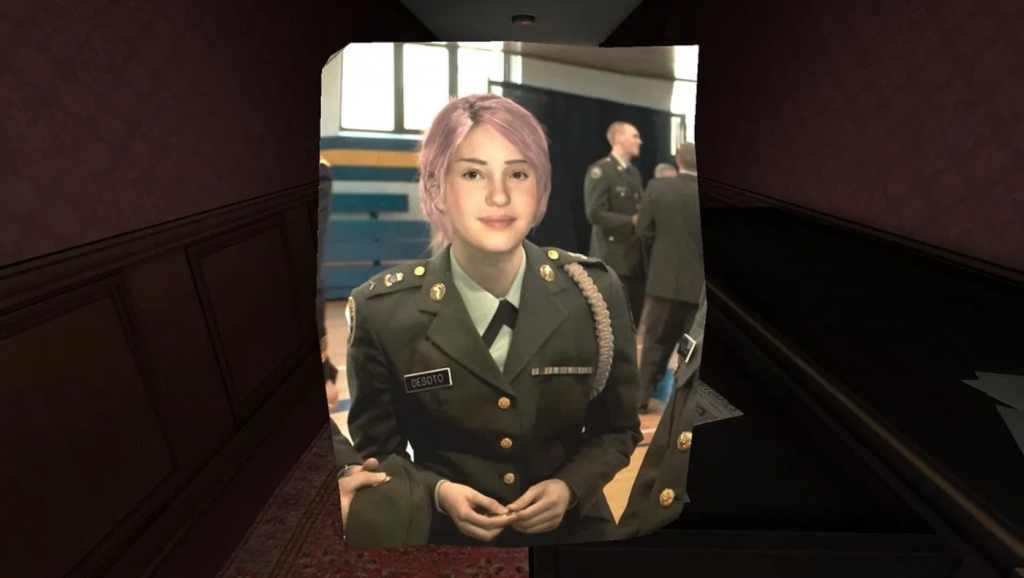
Gone Home (2013)
Gone Home from developer and publisher Fullbright has the pleasure of being a game that, once again, made me sob my little heart out. If that doesn’t make you think, ‘Huh, essential game to play,’ then I don’t know what to tell you.
A first-person exploration game, Gone Home follows a young woman returning home from her overseas travel. However, instead of the warm welcome she expects from her family, she finds the house completely empty. This leaves her no choice but to go through the house, interact with objects like journals and notes, and piece together what happened.
When Gone Home was first released back in 2013, it was immediately seen as a critical success, and not just because of its LGBTQ+ inclusive storyline that the players had to uncover. The way Fullbright combined hard-hitting and emotional storytelling with very little voiceover work or intense gameplay segments and features such as combat felt innovative for a year when the biggest games at the time were Saints Row IV, Bioshock Infinite, and of course, Grand Theft Auto 5.
While not a long game by any means, Gone Home’s capability of letting a player explore and ‘walk’ through with a sense of unease, but without any immediate danger, so that the focus was entirely on discovering the ‘buried treasure’ of the whereabouts of protagonist Katie’s family will stick with you long after you’ve put the game down.
It’s hard to believe it’s been 10 years since the game first released, but Gone Home’s impact can still be felt even years later. If you’re looking for a game that won’t stress you out and let you enjoy a truly lovely LGBTQ+ story, then look no further.
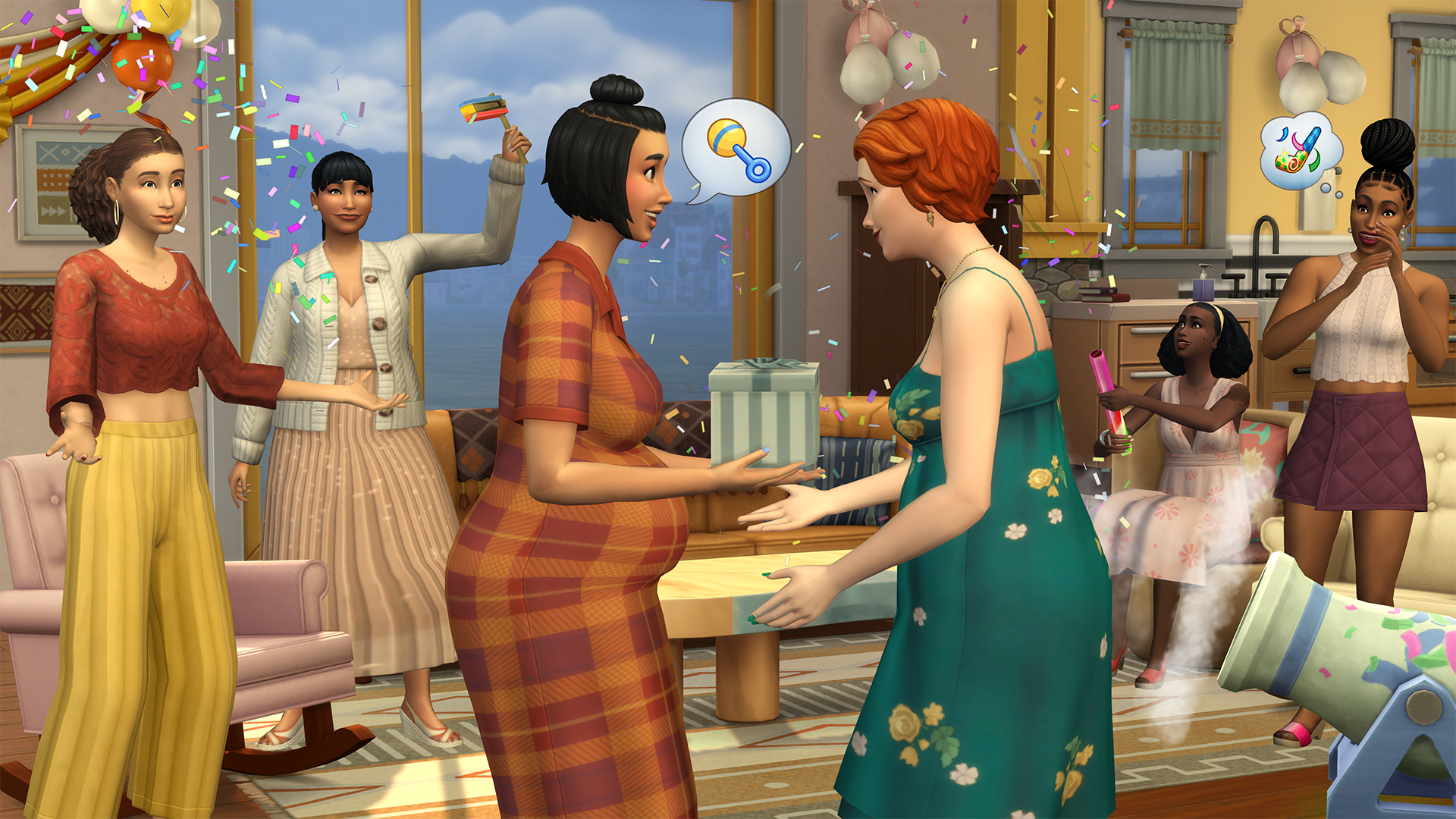
The Sims 4 (2014)
For many a fresh gamer, The Sims is the best way to get into gaming. I started with The Sims 2 (which changed the lives and minds of many a queer kid out there), and its ability to let you form relationships regardless of gender truly made me happier in allowing me to have the space to explore how I express myself with clothes and fashion, but sexuality too.
Many years have passed since then, and Maxis’ main focus (Sims-wise, anyway) has been The Sims 4 since 2014. While it’s early beginnings were very much shallow in comparison to the previous three The Sims games, the state of the game now in 2024 is significantly better. Of course, that doesn’t stop the fact that to get even a sliver of the content that’ll spice up your game, you’ll need to dip into your wallet in a way that feels almost pay-to-win-the-game-of-life, but if you’re into The Sims 4, I’d say the majority of the expansions and game packs are well worth your time and money.
Even so, it’s hard to ignore how vital some of the changes that Maxis has made to the base game make The Sims 4 a much more forward-thinking and thoughtful game for LGBTQ+ individuals, as well as families.
For example, Maxis included the use of surrogacy in The Sims 4 in an update in March, 2023. Previously players with same-sex Sims couples could adopt or, with a little magic work in the character creator, make it so that same-sex partners could impregnate one another. While the latter was amazing, for some players it didn’t quite reflect their circumstances in real life. With the surrogacy update, as well as even more additions to pronouns being added in 2023, Maxis expanded The Sims 4 to be far more comprehensive than ever before. And I, for one, love it.
Did I mention The Sims 4 also added top surgery scars in 2023? Even the latest Saints Row, which had the most all-encompassing character creators I’ve ever seen, wasn’t able to have trans-inclusive scars at launch. Nice one, Maxis.
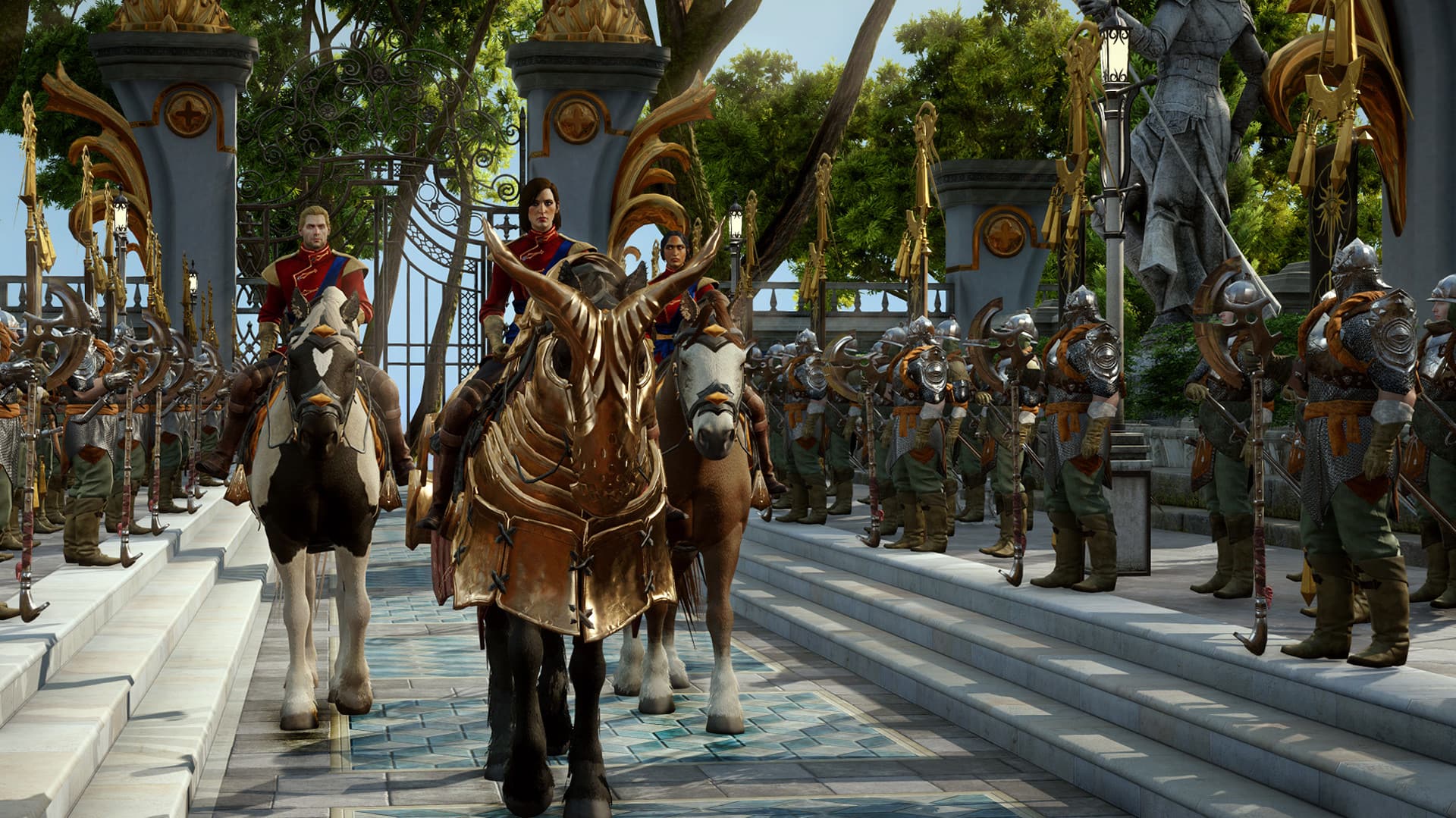
Dragon Age: Inquisition (2014)
As a ‘Dragon Age 2 is the best Dragon Age game’ truther, it hit me in the heart to say that despite my feelings, Dragon Age: Inquisition is probably the most accessible and better game when it comes to understanding and conveying LGBTQ+ relationships and themes.
The third in a trilogy of dark, RPG fantasy games, Dragon Age: Inquisition has players in the shoes of ‘The Herald of Andraste’, a completely customizable protagonist who had the unfortunate job of being the poor person who got pulled into a situation that they had nothing to do with. Thanks to their magic hand that can seal up rips in the Fade (an ethereal world that hosts spirits and demons), they’re thrust into leading a religious group called the Inquisition in Andraste’s name. Yeah, I know, there’s a lot to unpack here.
As with the previous games in the franchise, Inquisition has players meet and recruit several companions to help them in their quest. Each companion has their own romantic and sexual preferences, making them feel a lot more ‘real’ when it comes to how they interact with the player character as both a friend and a potential love interest. While this reduces who you can or can’t romance as a queer player (and we, the LGBTQ+ community, have yet to forgive BioWare for making Cassandra straight), it’s hard to deny that there’s not many games out there these days that’s not afraid to tell the player character no. It’s refreshing.
And let’s not forget about Dorian Pavus. A Tevinter mage, Dorian’s father and family put a strain on being who he really is — namely, a gay man. His storyline of how he comes to deal with that is one of the most haunting, yet poignant queer storylines that I’ve ever seen in a video game. It will make you tear up, trust me.
There are also other side characters like Krem, a trans man who finds his place alongside a mercenary group, and even returning legends like Leliana — a significant, bisexual companion-turned-advisor whose role in the Inquisition cannot be understated.
If you like your fantasy RPGs queer, Dragon Age: Inquisition is the game for you.
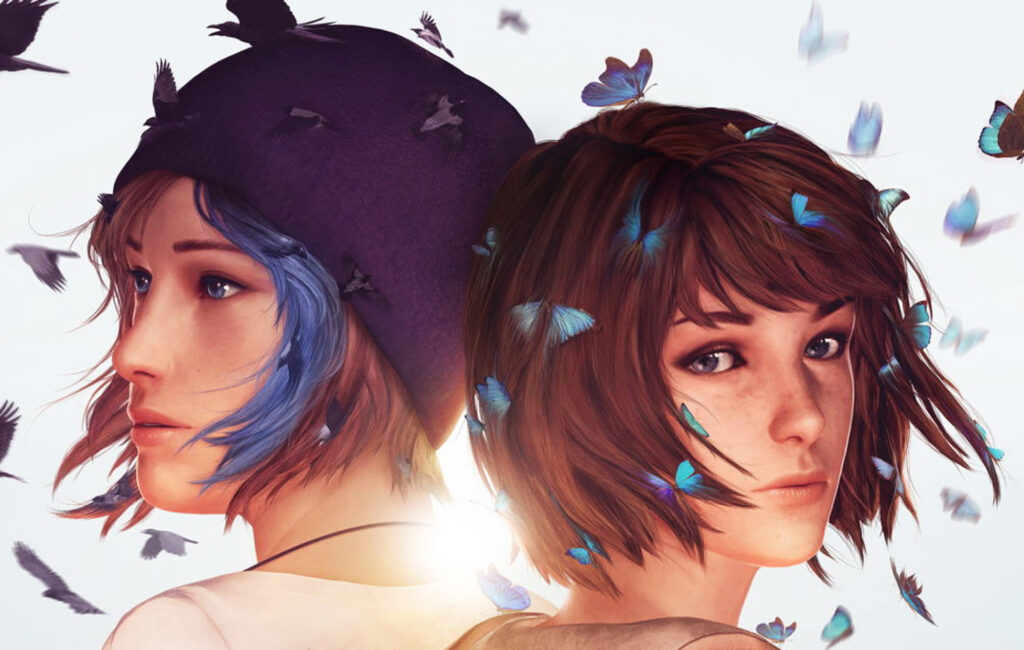
Life is Strange (2015)
It’s hard to believe that it’s edging on 10 years since the original Life is Strange released. But what isn’t difficult to understand is just how significant a part it played in many a queer gamer’s life. Its level of success can be seen in not only the game’s various sequels but also its spin-offs, comic books, and novelizations.
But with such a huge legacy, where best to start for those looking to jump in? The beginning, of course.
The original Life is Strange follows introverted, but artistic Maxine Caulfield as she returns home to the small town of Arcadia Bay to pursue her passion in photography. She quickly becomes wrapped in a mystery surrounding a missing girl called Rachel Amber, and even gets fancy rewinding time powers along the way.
It is a compelling story from start to finish; though it’s ultimately the relationship between Max and her estranged best friend, Chloe Price, that draws players in. Not only are the two girls very different people, but time has only caused the old wounds the two share to stretch even further. Whether they overcome these obstacles is up to the player, but what can be said, without a doubt, is that their relationship is the heart and soul that drives each narrative beat of the game. What sort of relationship that is is up to the player to determine.
Life is Strange has since expanded its world to focus on other characters and themes, such as the latest Life is Strange: True Colours and Life is Strange: Wavelengths positioning Alex Chen and Steph Gingrich as protagonists.
Yet, while the characters and settings have changed, the focus on story-rich narratives hasn’t. No matter which Life is Strange game you choose to jump into, you’re bound to have a great time.
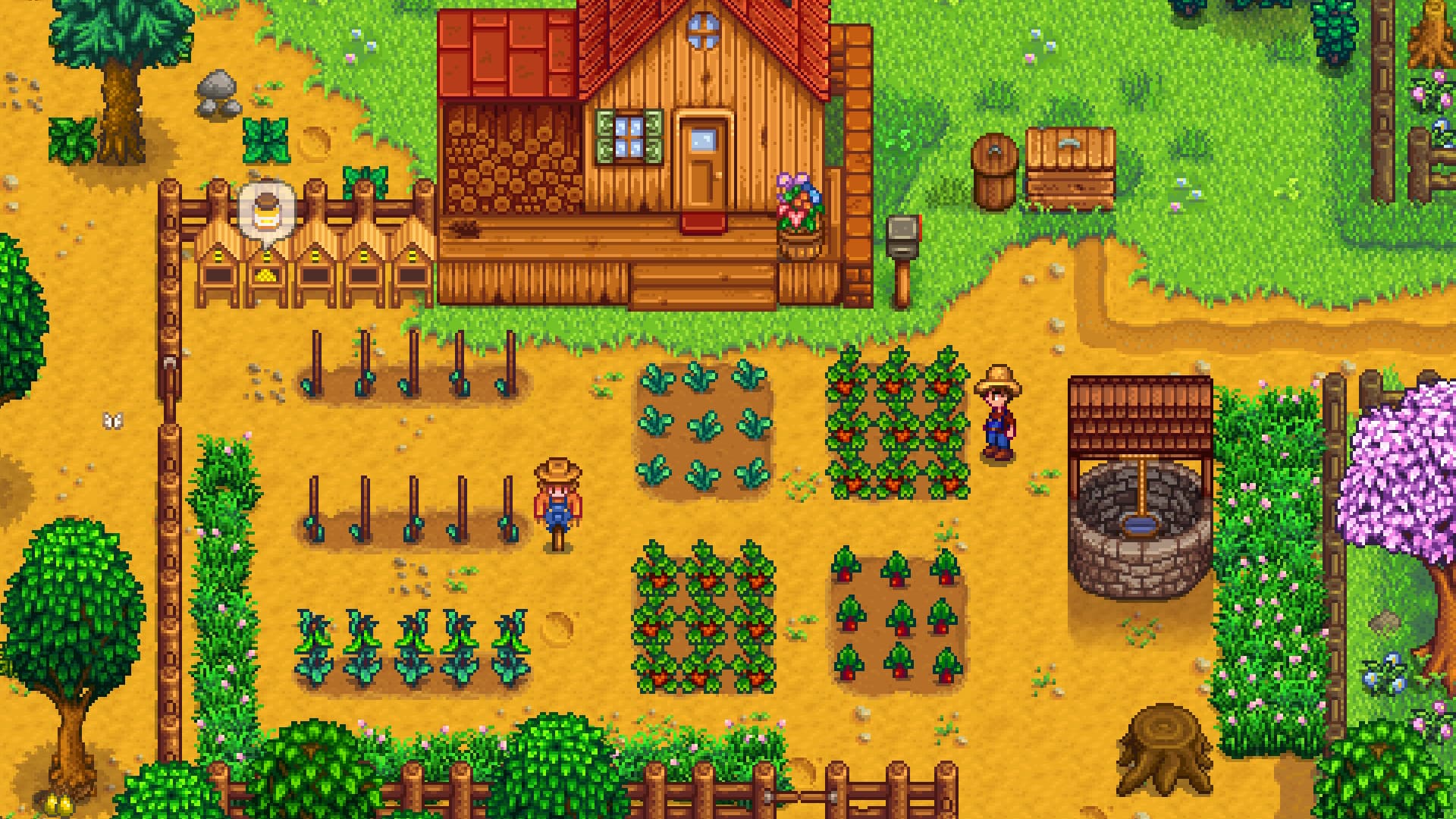
Stardew Valley (2016)
If you’ve spoken to me more than once, you’ll know that I have sentimental, but complicated feelings when it comes to ConcernedApe’s Stardew Valley. All in all, it’s one of the very first farming simulators that actually got me to stick around — and it was all because of the LGBTQ+ options to be found in the small, but vibrant community of Pelican Town.
Developed solely by Eric Barone and later helped along by publisher Chucklefish, Stardew Valley ultimately changed the life sim genre for the better by expanding on what made inspirations like Harvest Moon great: the ever-developing relationship between the player and their community in a rural, slow-paced setting. Yes, we also enjoyed the crafting, fishing, and exploration, but when you think about your time getting to know the people, you’ll always think back to who you married, who your favorite villager was, etc.
Barone saw that and decided that he’d go a step further by actively allowing same-sex players the chance to find love, marry, and have kids without any issues. For a farming life sim, that made Stardew Valley stand out amongst the crowd when it was first released in 2016. While most in its genre were stuck in the cisheteronormative past, Stardew Valley was leagues ahead.
Looking back at it now, it’s easy to say that the game has become dated. There’s no way to choose which pronouns you’re addressed by, and creating a non-cis farmer is difficult, but (again) it’d be impossible to say that its release didn’t change the genre in a big way. And that, more than anything else, is why it’s so essential to play as an LGBTQ+ gamer.
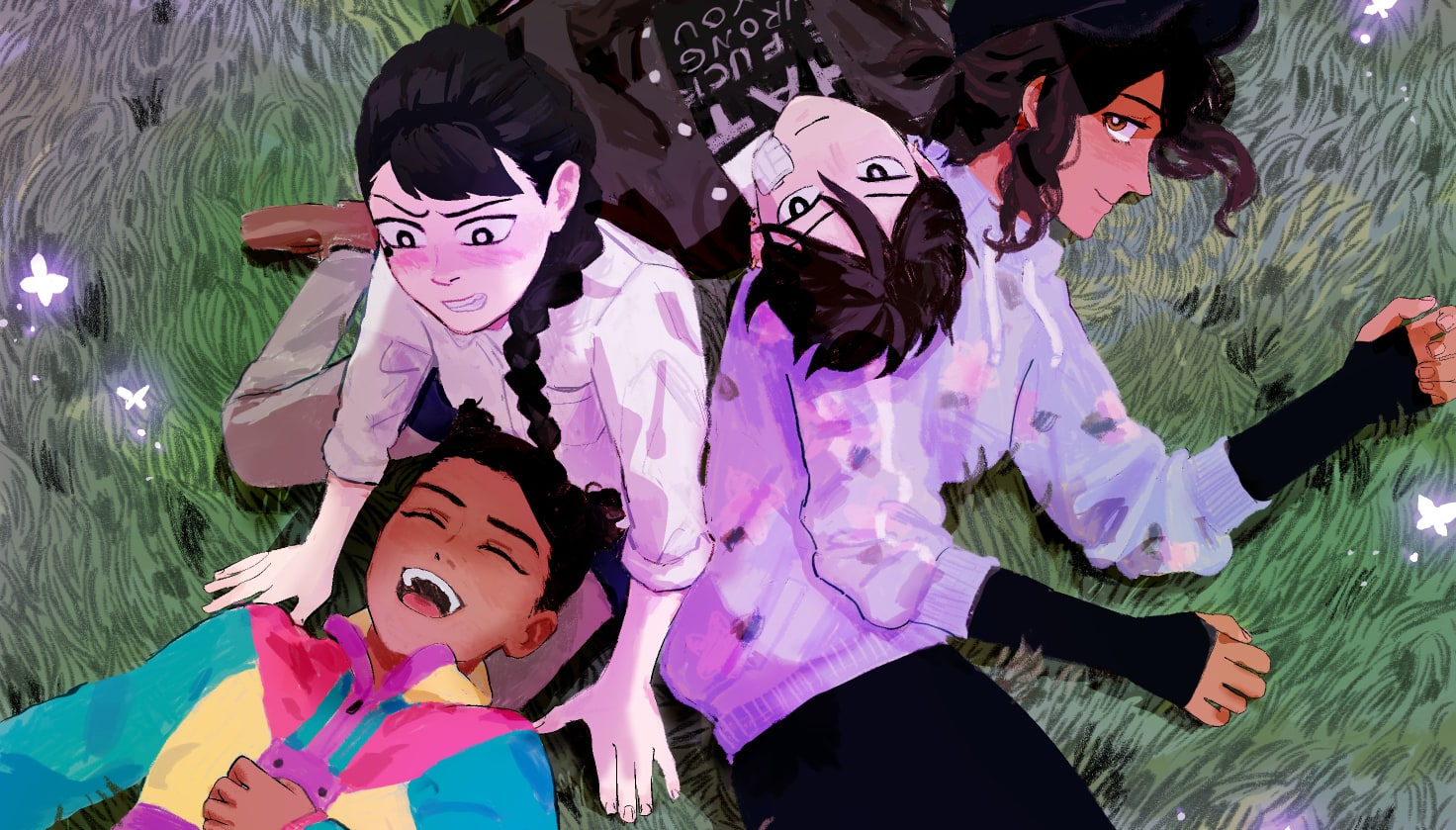
Butterfly Soup (2017)
Butterfly Soup is a visual novel from developer Brianna Lei that, for all extents and purposes, is one of the most touching stories that I’ve ever had the privilege to play. An emotional rollercoaster from start to finish; its cast of characters and the problems they face feel familiar to a queer person in high school just trying to find their way through life.
Following four LGBTQ+ Asian-American girls during their first year of high school in a 2008 US setting, Butterfly Soup alternates between different protagonists: the shy Indian-American Diya, the intelligent and hard-working Chinese-American Noelle, the funny and hyper Indian-American Akarsha, and the short, but competitive Korean-American, Min-Seo. The four of them have been friends for a long time, and each girl has their own set of problems they lean on each other for support. It’s very low-stakes but absolutely brilliant from start to finish.
While there is no branching narrative, players do get the option to pick and choose what each protagonist will say at a certain moment to add a layer of interactivity that, overall, helps establish each protagonist’s character in a meaningful way.
Overall, it’s a story of coming out at a young age and friendship between a group of young girls in a way that spoke to me. Stories about girls, particularly girls in friendship groups, are still so rare, and it’s even rarer to have stories about girls who aren’t straight or white either. Even now, in 2024, I can count the number of stories featuring these elements on one hand. Like most of the games on this list, Butterfly Soup feels modern and necessary, even by today’s standards.
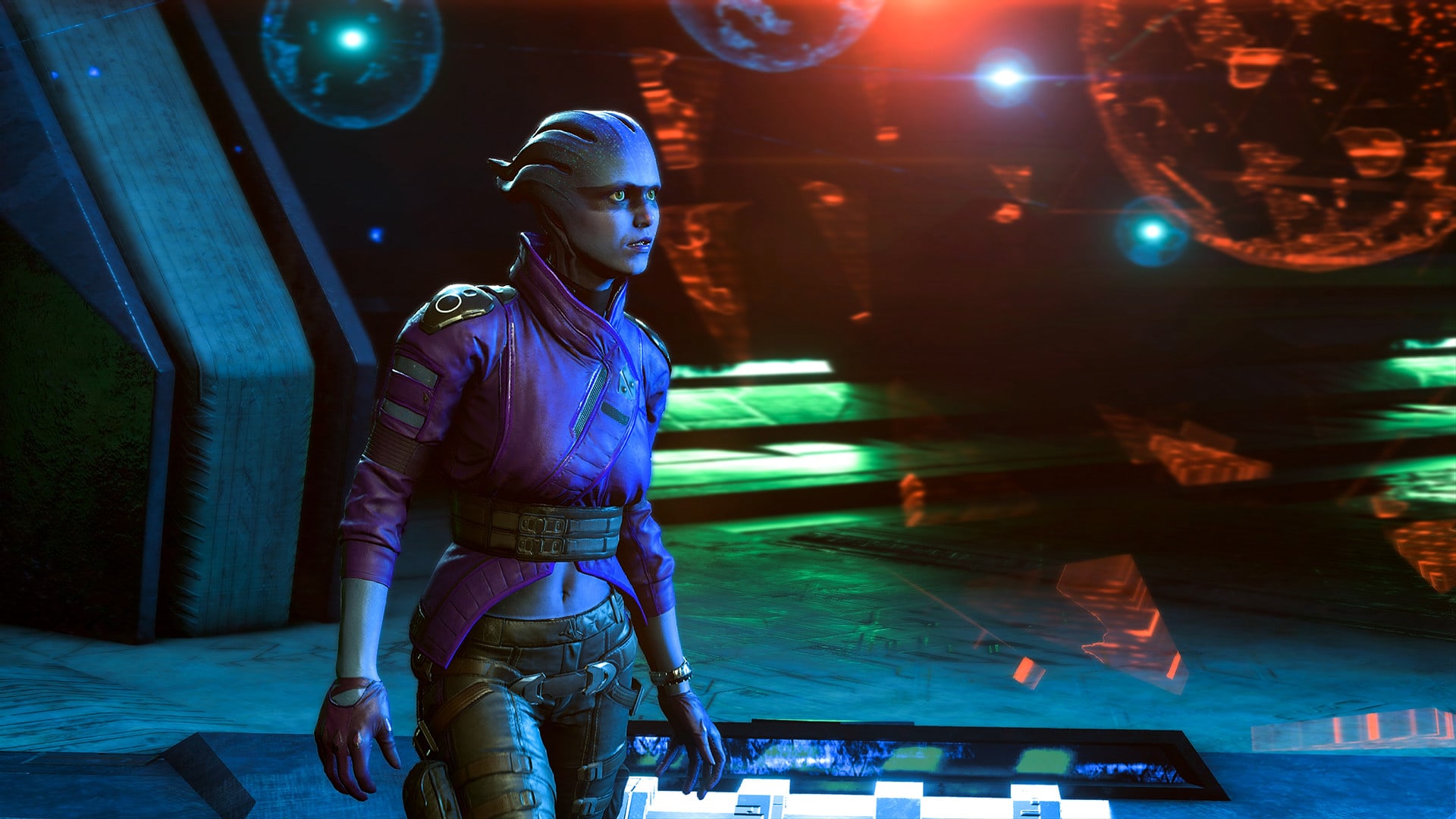
Mass Effect: Andromeda (2017)
I know what you’re thinking: Aimee, the worst Mass Effect game is an essential queer video game for beginners? How, what, when, and why? You’ll no doubt be feeling confusion, rage, and even a sense of betrayal. But to that, I say, of course, Mass Effect: Andromeda over every other Mass Effect game. Just hear me out.
The original Mass Effect changed history when it was first released, earning the ire of right-wing pundits for daring to show two women having sex in the year 2007. It was unfairly criticized for having the potential to ‘corrupt children’ and, after blowing up in such a big way, caused enough fuss that the sequel, Mass Effect 2, pulled back even more when it came to same-sex relationships. The heterosexuals, as always, remained unaffected by such backlash.
Mass Effect 3 improved how it handled same-sex relationships somewhat by finally acknowledging that gay men existed, allowing gay men the option to pursue a relationship with old-flame Kaidan Alenko, or Alliance pilot Steve Cortez. Even female Shepards, who previously only had the option to romance Liara, got the chance to form a new relationship with comms specialist, Samantha Traynor. Even so, it begged the question of whether this truly was too little, too late — especially for a game set in the far future.
This leads me to Mass Effect: Andromeda. Much like its predecessors, Andromeda came with a protagonist who could romance their companions. Nonetheless, unlike the previous games, there were far more options for bisexual, lesbian, and gay players than ever before. While some teammates were off limits, gone was the feeling that BioWare was hiding behind technicalities to not include queer characters in not just the main cast but the world too.
Yet, what makes this game so essential to me is the rocky history behind getting a more inclusive game. I’ve already mentioned the criticism that the original trilogy faced, but even when Andromeda launched, it was far from perfect — especially for gay men. Much like the trilogy, gay men were left on the wayside for Andromeda. While lesbian women had three love interests to choose from, gay men only had two. Both were unable to join the protagonist in their squad, and each lacked a significant amount of narrative importance.
What soon led to change was when players discovered that Jaal Ama Darav, a romance option, had voice lines that referenced a potential gay romance that wasn’t actually in the game. Considering BioWare’s rocky history of treating gay men fairly, a huge backlash led to BioWare updating Andromeda to include Jaal for gay men once more.
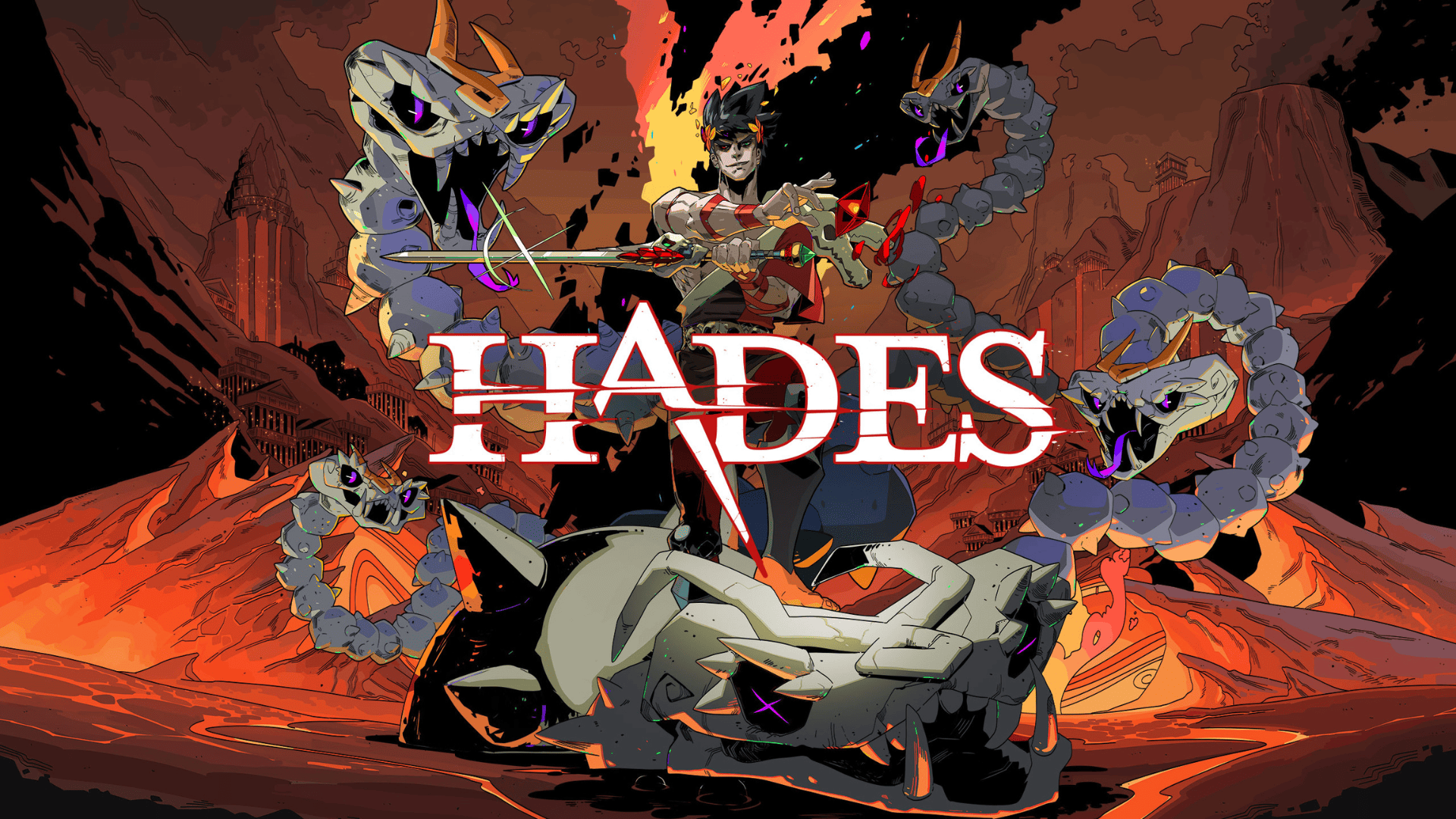
Hades (2018)
Supergiant Games have always included two things when it comes to its games: stellar, life-changing music, and plenty of characters from the LGBTQ+ community.
While Pyre is a particular favourite of mine (and should most definitely be played), Hades is, without a shadow of a doubt, the Supergiant game that has become so utterly beloved by queer gamers. And it’s not hard to see why when each and every character you meet is 1) hot as hell and 2) deeply traumatized by their past. That’s like, the two ingredients that make up queer catnip.
Even so, the main goal of this roguelike adventure is for Zagreus to escape the Underworld and meet up with his long-lost mother, Persephone. That means going up a ton of floors, fighting a ton of enemies, and meeting new and fascinating individuals who are doing their utmost to stop you. What’s worse, all on the orders of Zagreus’ father, the one and only Hades.
However, there’s more to Hades than kicking all of the arses of the denizens of the Underworld. Zagreus can form relationships (romantic and otherwise) with plenty of characters, but he has a wild amount of chemistry with three particular characters: Megaera, Thanatos, and Dusa. All three have a complicated, but interesting relationship with Zagreus, all of which can be revealed only by talking to them, as well as gifting them items such as Nectar and, eventually, the luscious Ambrosia.
Once gifted, Zagreus unlocks special scenes with Megaera, Thanatos, and Dusa. But what makes these compelling is that, instead of feeling as though all you’ve done is press a button and been gifted the pleasure of sex and companionship, each relationship has to be worked on. It isn’t easy to get Ambrosia, and you can go through multiple runs without seeing a single one of your optional love interests. It’s almost as if Zagreus has to work on himself before he can open up to other people or something…
Most importantly, gifting Ambrosia doesn’t necessarily mean a romantic relationship. While Zagreus can confirm (and enter) a relationship with both Megaera and Thanatos together or separately, Dusa expresses she only sees Zagreus as a friend and that she’s unsure she can even feel romantic connections.
That said, Zagreus is far from being the only queer character in the game. While it is possible to hit on Achilles, due to his feelings for his fallen love, a hero called Patroclus.
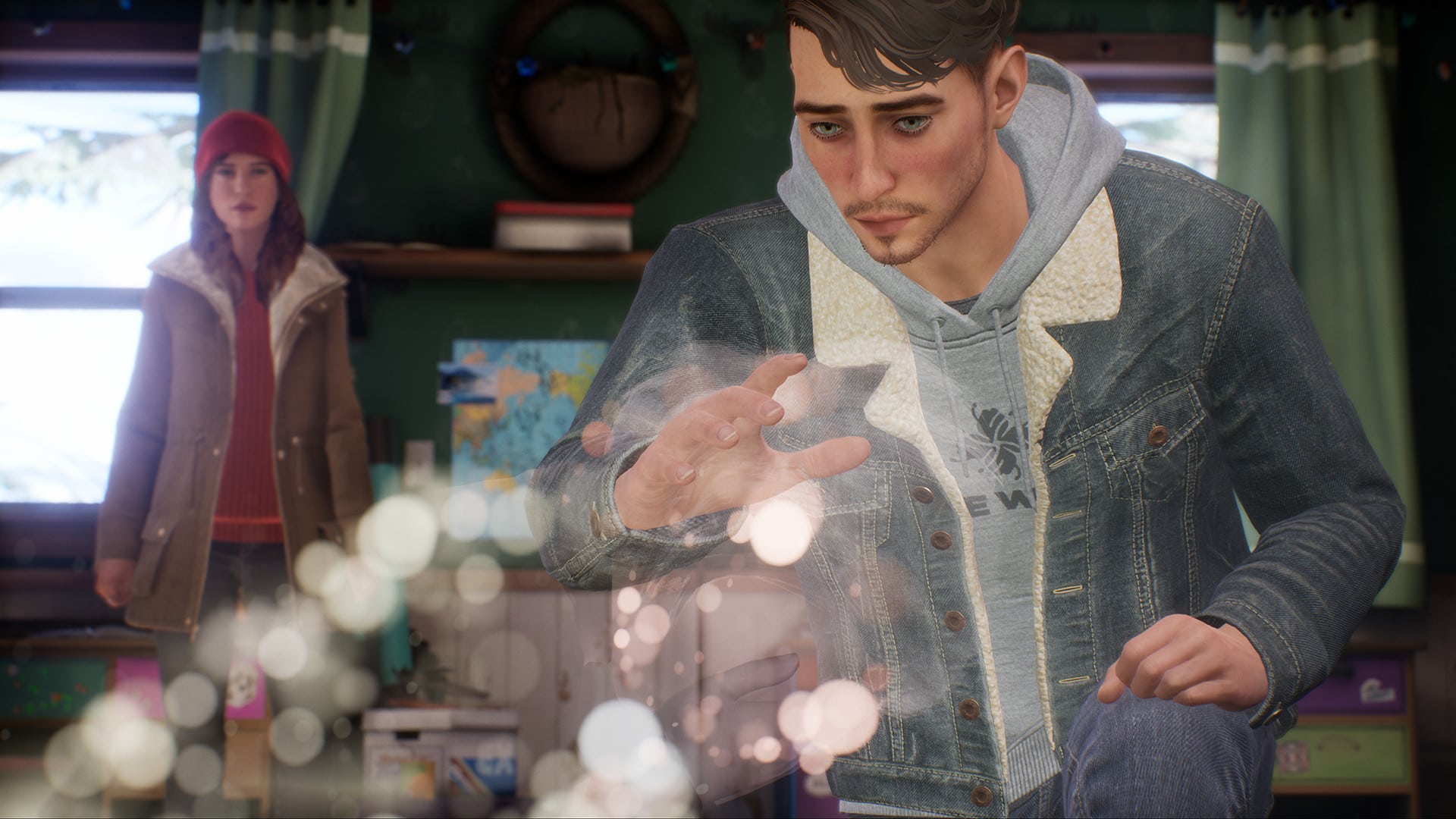
Tell Me Why (2020)
When Tell Me Why was first announced, there were plenty of trans gamers who felt a sense of trepidation. A story-rich game following the haunting tale of two twins seemed trivial enough, but considering that one protagonist would also be a trans man? Some felt that the games industry wasn’t ready to tell an authentic tale that didn’t make the protagonist a stereotype or made him being trans his entire personality.
Tell Me Why quickly proved that wrong at launch. In our own review, Leon Killin describes the game as “pretty damn groundbreaking.”
Set in the picturesque and completely fictional town of Delos Crossing, Alaska, Tell Me Why follows the story of twins Alyson and Tyler Ronan reuniting after a decade of separation. Their return to Delos Crossing is due to their mother’s death and their need to make the necessary preparations to put the house on the market for sale.
Yet, considering their years of separation, their reunion isn’t entirely happy. They have numerous unresolved past traumas that they’ve yet to acknowledge, and have grown to become very different people over time. These hesitant, tension-filled interactions between the twins are brought to life by the emotional performances given by Erica Lindbeck as Alyson and August Aiden Black as Tyler, and I’d be surprised if you didn’t tear up once playing this game. As a sibling, I know I did.
But what makes Tell Me Why such an essential queer video game is, ultimately, its authentic and genuine depiction of Tyler. Tyler’s past is traumatic, and his journey from where he started as a child to who he is now as a man is one of the most touching stories I’ve personally played. He is never coddled by the game’s narrative. He is multifaceted from the get-go, and his identity is never treated as gratuitous. Instead, as described by Killin in his review, what we do get to see of Tyler is there to convey how being a trans man affects his everyday life.
“Tyler speaks candidly about binding, about his future plans for his transition as the narrative unfolds, we see dates marked on his calendar about when his next testosterone shots are, and he speaks with confidence and without fear about himself as a transman. He is never dead named or misgendered, there are no gotcha! moments seeing Tyler in any state of undress, and there are no ‘tells’ that he is trans. When his transition is discussed, it’s with grace and respect and he is never outed without his permission.”
Even when there are moments of ignorance in Tell Me Why, that is swiftly dealt with and often by characters that aren’t Tyler. There are true moments of solidarity and companionship in this game, and it’s one of the best things about it. So, give it a go.
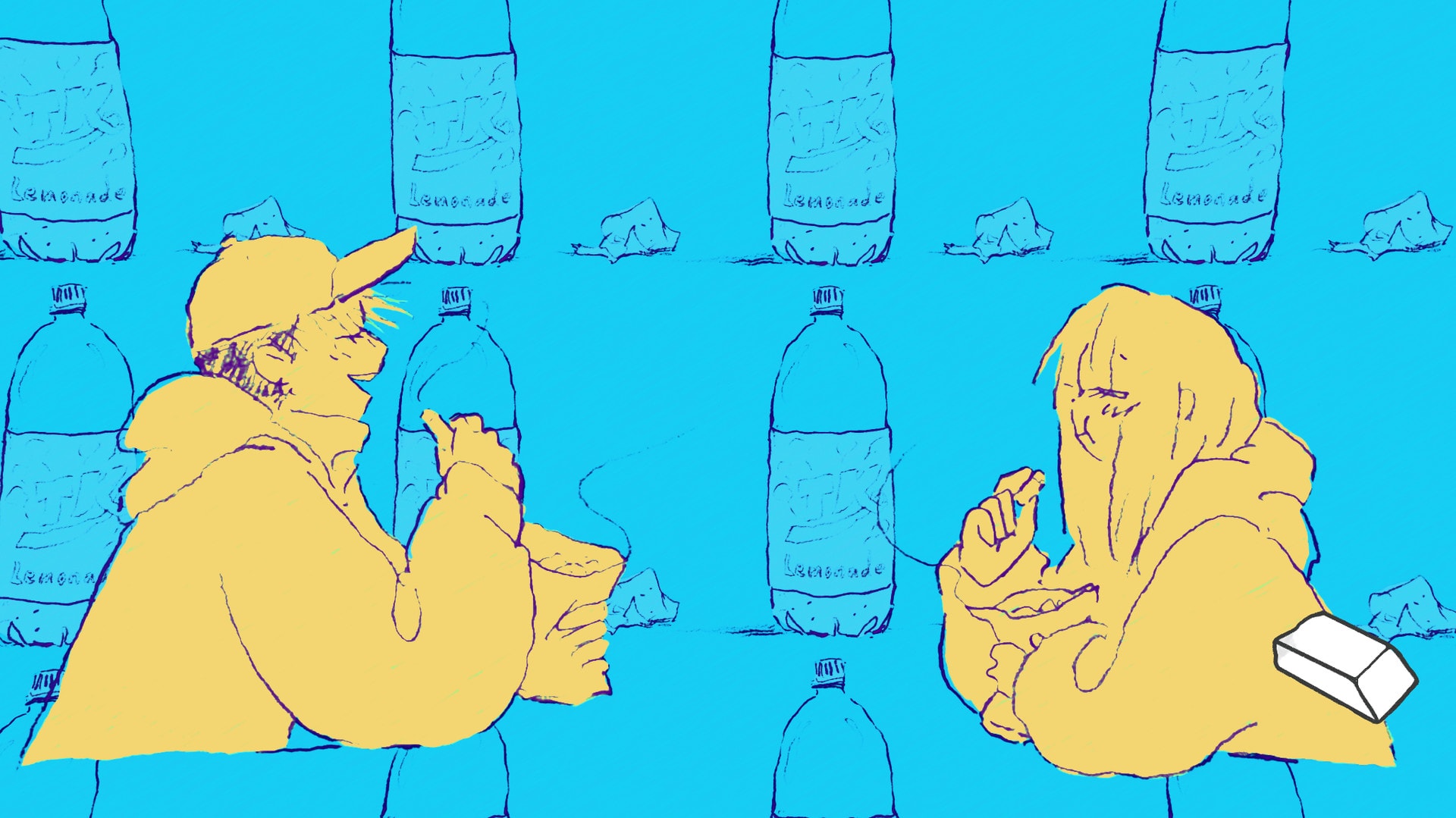
If Found (2020)
If you ever feel like being emotionally sucker-punched, then DREAMFEEL’s If Found is the essential game to get you into the world of queer gaming.
The story of If Found is mostly told through diary entries from the protagonist, Kasio McHugh, an Irish trans woman. In her diary, there’s a mixture of doodles, daydreams, and pictures, with occasional moments where the writing is scribbled over other, more faded, paragraphs to show just how frantic and hectic Kasio’s thoughts are. It makes sense, really; she’s a young woman trying to get her life together.
Set in 1993, Kasio’s journey has her returning to her hometown of Achill, Ireland. The problem is that comes with its own set of problems, as Kasio’s identity is scrutinized by her family members. Not only do they treat her differently, but they aren’t at all understanding about the struggles Kasio is going through, leaving her little to no choice but to leave her family home and run to the only place she feels accepted: her friend group.
If Found is just as much a story about Ireland as it is about Kasio and found family. I feel as though many LGBTQ+ individuals out there understand just how utterly important it is to find connection, and for Kasio it’s within her friend group and the nature that she finds herself surrounded by. Even the old, crumbling house that she and her friends doss at gives her a level of acceptance to express herself and find out who she really is.
What’s so monumental about If Found is that its existence continues to convey how pivotal it is for those who are trans to see that their is happiness waiting for them, even despite the overwhelming amount of negativity there is. Without spoiling what, when and how, Kasio finding acceptance and love is what we need to see, and its these moments of pure happiness that is conveyed brilliantly in the artwork from Liadh Young, who makes even the smallest of pictures feel as large as a crescendo.
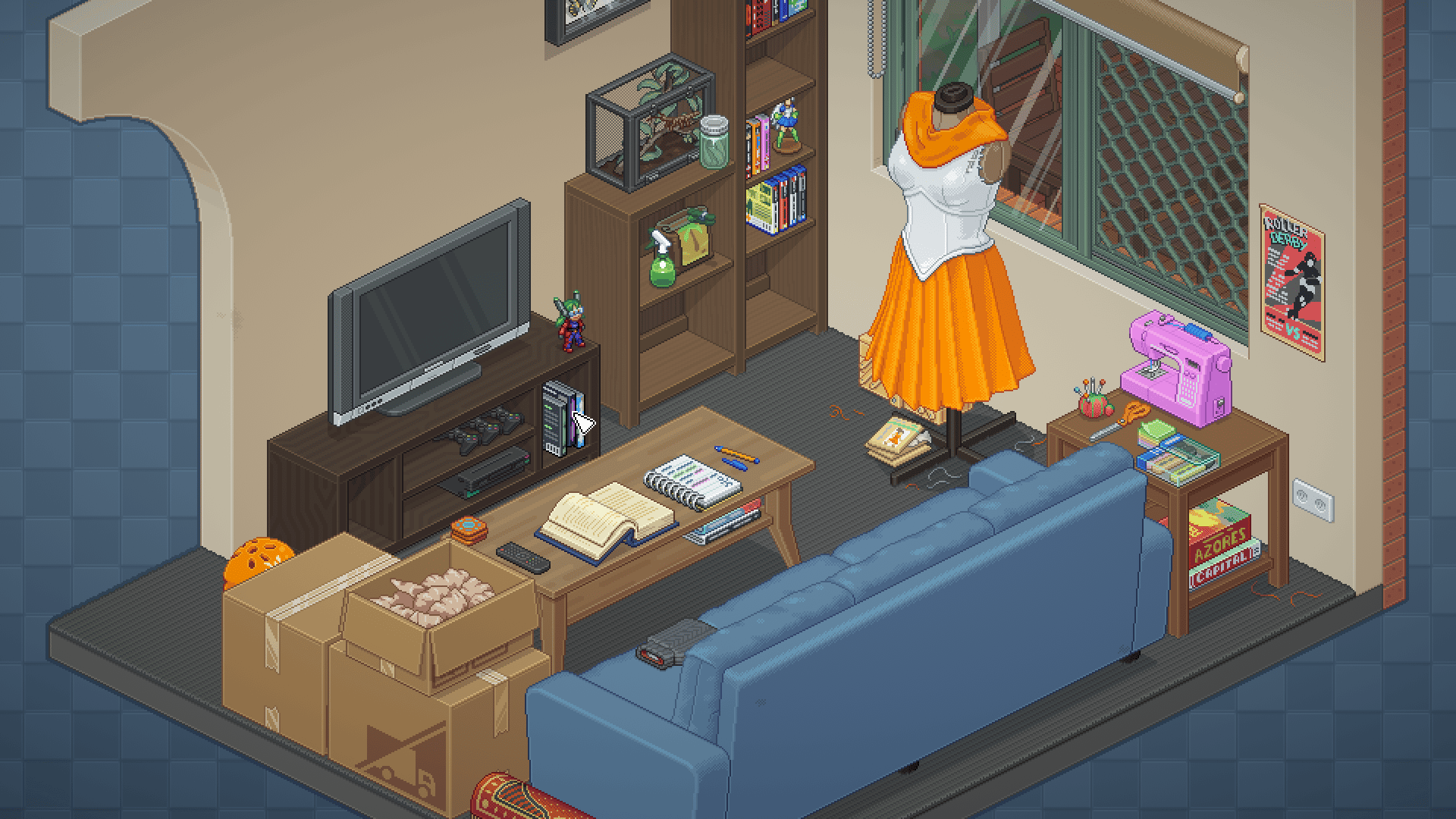
Unpacking (2021)
As someone who absolutely hates puzzles of any kind, I went into Unpacking with complete and utter trepidation. Making sure things were in the right place, especially objects like clutter? That sounded like an utter nightmare to me.
Not only was I proven wrong, but Unpacking quickly established itself as a game that — in spite of its zero dialogue and voice work — absolutely knew how to tell a riveting, engaging, and LGBTQ+ inclusive story solely through environmental storytelling. Environmental storytelling that you, the player, have the power to curate and expand by where you place each object of significance in the protagonist’s life.
The premise of this sweet game from Witchbeam is a rather simple one: at the start of each level, you’re positioned in a new room, one that’s full to the brim with boxes. Your goal is to open those boxes, pick out all of your stuff, and put them away in places that you feel best suit them. Some of the objects can be put away in a very ‘willy-nilly’ way, whereas others must go to a certain location.
However, each level isn’t just your very own moving and unpacking simulator — it also tells a story through the items that the protagonist has to put away. For example, one of the first levels that you play is clearing and unpacking the protagonist’s stuff into a new bedroom. The walls are bare, the room itself is small, your bed is pushed into a nook, and the items that you do have are childlike and simple.
As the levels progress, the items change as much as your surroundings to signify the passing of time in a way that’s both enchanting and bittersweet. Sometimes, you’ll come across old items from childhood as you move into a new set of rooms or be forced to contend with living with another human who doesn’t quite give you the same freedom that you had when you were a kid.
There’s a lot to love about Unpacking, so don’t be afraid to give it a try.
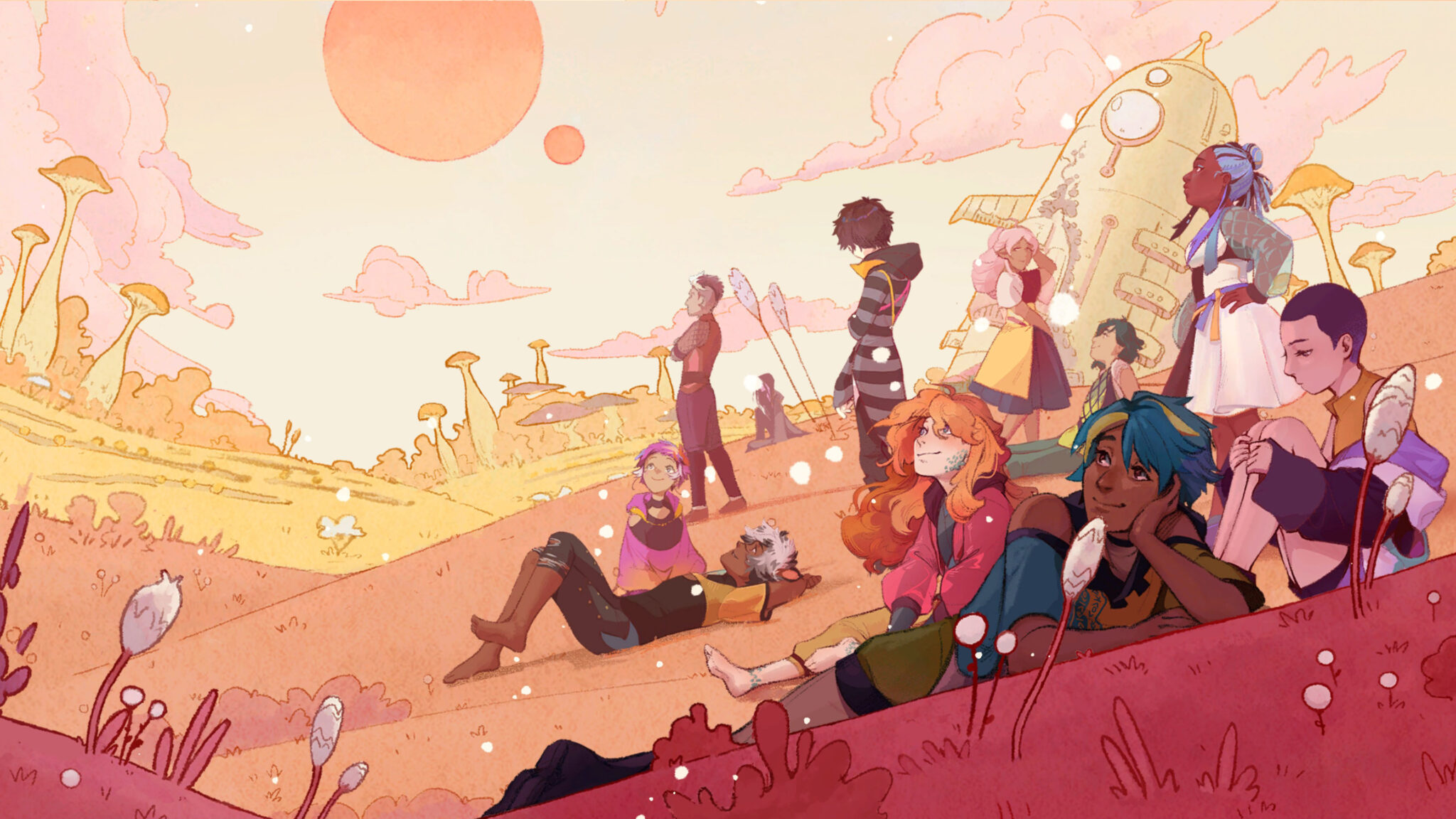
I Was A Teenage Exocolonist (2022)
When someone asks me my favourite game that’s come out in the past few years, my immediate answer is to hype up I Was A Teenage Exocolonist from developer Northway Games.
In this interactive, narrative adventure game, players take on the role of a 10-year-old child who crash lands onto the new and dangerous world of Vertumna after 20 years aboard a spaceship. You never knew Earth, and you never understood anything but the cold, steel walls of a ship that was once your home. Vertumna, however, signifies a fresh new start. However, not everything is as perfect as it may seem.
I Was A Teenage Exocolonist takes you on a wild, sci-fi adventure that takes place over the next 10 in-game years, and it tells a fantastic story about reincarnation, space, and ancient civilizations. You’ll start young and go through all the things life has to throw at you, such as puberty, your very first crush (or lack of one), the demand you find a job, and even further improving the civilization of Vertumna. That is, of course, without mentioning the threats that lurk beyond the cityscape’s walls. It’s tough being a teenager when you’ve got the world knocking at your door.
Yet what makes this game so essential is the amount of choice given to the player. Even with the limitation of physical character customization (you’re unable to change your hair colour, face, and body size), you are able to choose where you align with your gender identity and pronouns. You’re also able to customize your gender expression as you hit each new significant age group throughout the game. For example, I used they/them pronouns and wanted my appearance to be more androgynous growing up. Then, on my second playthrough, I decided to use he/him pronouns and make my appearance more feminine. None of these choices affected me in any way, outside of what characters used to address me, and my own personal preferences. Aka, it’s a choice that absolutely rules.
This level of picking and choosing goes even further with the pronoun system in I Was A Teenage Exocolonist. While a lot of video games have started to offer players the choice of pronouns, none quite give you the same level of control as this game. For example, do you want your player character’s romantic interest call you their boyfriend, girlfriend, or perhaps something more specific, like lover? Would you rather have your parents address you as their son or daughter or child? No matter what, you’ve got the control.
Why this matters, and why I Was A Teenage Exocolonist should be applauded for this, goes beyond just representation. By giving players control of how they are addressed, you guarantee that they are able to be comfortable in their own skin in a way that they may be unable to receive anywhere else. It is a small comfort in the grand scheme of a thing called life, but certainly, one that should be recognized as a step that other video game developers should consider when thinking about how to make their games more inclusive.
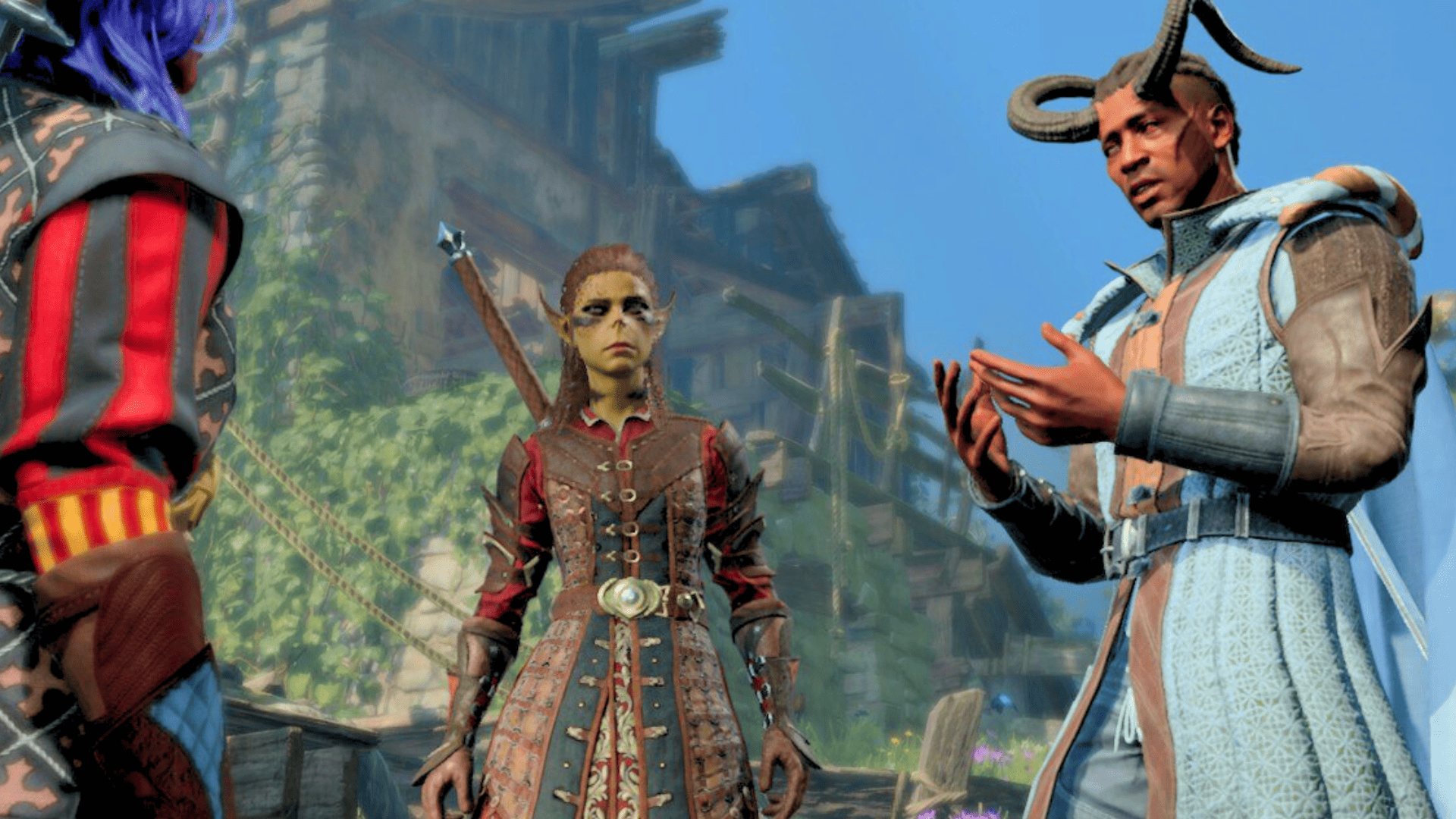
Baldur’s Gate 3 (2023)
Every time I include Baldur’s Gate 3 in something, it feels a little bit like cheating. Like, of course one of the best RPGs of all time just so happened to be a game that’s also incredibly rewarding for LGBTQ+ players. What achievement has this game not managed to smash through with its roaring success?
(A few things, actually, but let’s not get into that right now.)
Let me first start by pointing out that out of all the games on this list, if you’re new to gaming in general and want to sit down and enjoy a cinematic story with LGBTQ+ themes and characters, then this might not be the game for you. While Baldur’s Gate 3’s prestige can be seen from space and is genuinely one of my favourite games of all time, it’s also bogged down by complex combat and gameplay systems that will send your brain a bit loopy. So, if you’re super new to games, come back to this one later.
With that said, Baldur’s Gate 3 is an exceedingly queer-inclusive game even beyond its cast of pansexual companions. Set in the world of Dungeons and Dragons (which comes with its cons, as well as pros), players take on the role of an adventurer who had a tadpole popped into their eye by an army of mind flayers who may or may not, be planning to take over the entirety of the world. While not perfect, its world is incredibly inclusive of LGBTQ+ characters, with several of them making up some of the most memorable and heartfelt NPCs that you come across, and all with monumental stories. You’ve got your lesbian angels, jerkass gnomes, chef gays, trans cult members, and pining bisexual bards, among other things. Indeed, there are a variety of gays running around in the far off-land of Faerûn.
What’s most important, though, is just how expertly Larian weaves these characters into the game’s narrative with pure ease. Act 2 has a queer relationship play a significant part in helping the players understand and unite against their antagonist, and introduces a number of characters and relationships that makes the world players inhabit feel particularly welcome to LGBTQ+ players.
With so much going for Baldur’s Gate 3, it’s hard not to recommend it as essential. Though fair warning, even when you complete your first playthrough you won’t want to stop. Maybe book a few days off before you jump on in…





